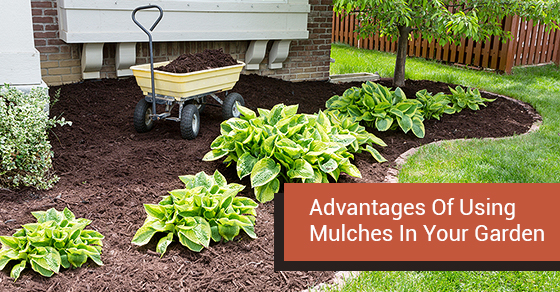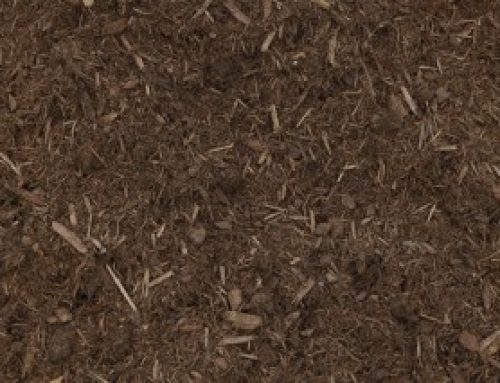Mulch is material spread over a soil’s surface to create a covering. There are two types of mulch: organic and inorganic. Organic mulch is made of natural materials such as hardwood chips, pine straw, crushed leaves, grass clippings and other compostable materials. Inorganic mulch consists of pebbles, crushed rock and plastic or rubber mats and chips. Many people prefer organic mulch because it is cheaper, but it does have to be replaced more often than its inorganic counterpart.
Mulching comes with many advantages because of the unique way it helps your garden.
Provides weed control
Weeds can cause major issues for your garden. By mulching, you are limiting the amount of these unsightly lawn creepers that can pop up, because excess sunlight will have a hard time penetrating the soil. Weeds need sunlight to grow and without enough of it they can’t spring up and ruin your garden. Mulch acts as a barrier that keeps too much sun from getting into the soil and making weeds.
Prevents erosion and aids with moisture retention
When it rains, your soil is subject to erosion. This is when water, wind and other natural elements damage your garden by washing away the soil. When you use mulch, it keeps excess rainfall from eroding the soil by weakening the force of the water when it hits the ground. Furthermore, mulch helps absorb water and limit evaporation so that the soil is never too thirsty, especially in the summer.
Added pest control
Some insects are great for your garden, while others destroy your plants and grass. Using mulch that is fragrant, like cedar bark, can work to your advantage when it comes to pest control. Cedar bark acts as a natural insect repellant keeping the bad insects away. Mulching also brings in the pests you need like earthworms. Earthworms help with the nutrient cycle of your soil and improve its structure, making it stronger for growing.
Locks in nutrients
As it decomposes, mulch releases nutrients into your garden’s soil. These nutrients, along with the nutrients already enriched within the soil, don’t erode or wash away and remain locked in, helping your garden stay healthy.
Helps with temperature fluctuations
When a plant is exposed to below-zero temperatures, frost-heaving occurs, in which plants are pushed from the ground as the soil expands and contracts. In the winter, mulch protects plant roots from the cold and deters frost-heaving. Mulch also helps keep plant roots cool in the summer and moderates soil temperature fluctuations in the spring as the ground thaws.
Mulching is not a necessity, but your garden will flourish if you do it. When you do add mulch, ensure that you are only using 2-4 inches and avoid piling up too much of it against the trunk of trees or stems of plants.


